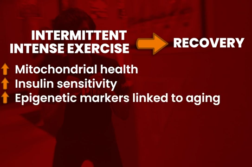ORLANDO, Fla. (Ivanhoe Newswire) — Lung cancer is the second most common cancer in men and women, and the most deadly. But, there are a lot of myths surrounding this cancer.
Sharon Rutka got the diagnosis after a routine chest xray.
“The nurse said they found a spot on my lungs,” Rutka detailed.
That spot was lung cancer.
Rutka told Ivanhoe, “I mean I was worried. I don’t have time for this.”
Luckily, Rutka’s cancer was caught early. One big myth about lung cancer is that if you have it, you’ll die within a few months.
Raja Flores, MD, Icahn School of Medicine Mount Sinai Hospital in New York City, explained, “If you find it early, 80 percent of lung cancers can be cured.”
The problem is lung cancer is often caught too late, which leads to another myth, that there are no symptoms. Doctors say there are signs to watch for: a cough that doesn’t go away, chest pain, weight loss, coughing up blood, or infections like bronchitis or pneumonia that keep coming back. Another false belief, only smokers get lung cancer.
“Everyone automatically assumes smoking, lung cancer, but no, there’s a good number that can have cancers that have never smoked,” said Dr. Flores.
While smoking does increase your risk, more than 40,000 cases of lung cancer are diagnosed each year in non-smokers. The last myth, quitting smoking won’t help. It’s not true! Ten years after quitting the habit, your risk of dying from lung cancer is about half that of a person who still smokes.
Here’s an interesting fact: black men are about 20 percent more likely to develop lung cancer than white men. But, the rate is about 10 percent lower in black women than in white women.
Contributors to this news report include: Julie Marks, Producer; Roque Correa, Editor.
Free weekly e-mail on Medical Breakthroughs from Ivanhoe. To sign up: http://www.ivanhoe.com/ftk
LUNG CANCER MYTHS
REPORT #2468
BACKGROUND: Lung cancer is the second most common cancer in both men and women. About 14 percent of all new cancers are lung cancers. The American Cancer Society estimates for 2017 in the United States, about 222,500 new cases of lung cancer (116,990 in men and 105,510 in women), and about 155,870 deaths from lung cancer (84,590 in men and 71,280 in women). Each year, more people die of lung cancer than of colon, breast, and prostate cancers combined. Lung cancer mainly occurs in older people. About 2 out of 3 people diagnosed are 65 or older, while less than 2 percent are younger than 45. The average age at the time of diagnosis is about 70. Statistics on survival in people with lung cancer vary depending on the stage of the cancer when it is diagnosed. Despite the very serious prognosis of lung cancer, some people with earlier stage cancers are cured. More than 430,000 people alive today have been diagnosed with lung cancer at some point.
(Source: https://www.cancer.org/cancer/non-small-cell-lung-cancer/about/key-statistics.html)
FACTS AND SYMPTOMS: Lung cancers, also known as bronchogenic carcinomas, are broadly classified into two types: small cell lung cancers (SCLC) and non-small cell lung cancers (NSCLC). SCLC comprise about 20 percent of lung cancers and are the most aggressive and rapidly growing of all lung cancers, relating strongly to cigarette smoking. NSCLC are the most common lung cancers, accounting for about 80 percent of all lung cancers. In up to 25 percent of people who get lung cancer, the cancer is first discovered on a routine chest X-ray or CT scan. In symptoms related to cancer, the growth and invasion of lung tissues and surrounding tissue may interfere with breathing, leading to symptoms such as coughing, shortness of breath, wheezing, chest pain, and coughing up blood. While the majority of lung cancers are associated with cigarette smoking, the fact that not all smokers eventually develop lung cancer suggests that other factors, such as individual genetic susceptibility, may play a role in the causation of lung cancer. Numerous studies have shown that lung cancer is more likely to occur in both smoking and nonsmoking relatives of those who have had lung cancer than in the general population. It is unclear how much of this risk is due to shared environmental factors (like a smoking household) and how much is related to genetic risk.
(Source: http://www.medicinenet.com/lung_cancer/article.htm)
UP AND COMING RESEARCH: Treatments that focus on the power of the immune system against cancer are an exciting area that’s seen a rise of interest and developments in recent years. A number of these immunotherapy drugs have now been approved in the UK for several different cancers. Professor Christian Ottensmeier, a Cancer Research expert at the University of Southampton, and Professor Pandurangan Vijayanand, from the University of Southampton and the La Jolla Institute for Allergy and Immunology in the United States, set out to discover what it is about the immune systems and tumors of those who do respond well to the treatments that separates them from those who don’t? “We were curious to see whether we could map out what key immune cells that are protective against tumors look like in patients with early disease,” said Ottensmeier. Their work, published in the journal Nature Immunology, points towards a special type of killer white blood cell, which seems to be playing a crucial protective role inside certain tumors. On top of this, scientists believe they may have identified a new way to predict which patients might benefit from certain immunotherapies, and those who won’t.
* For More Information, Contact:
Lucia Lee, Senior Media Director
Mount Sinai Health System



